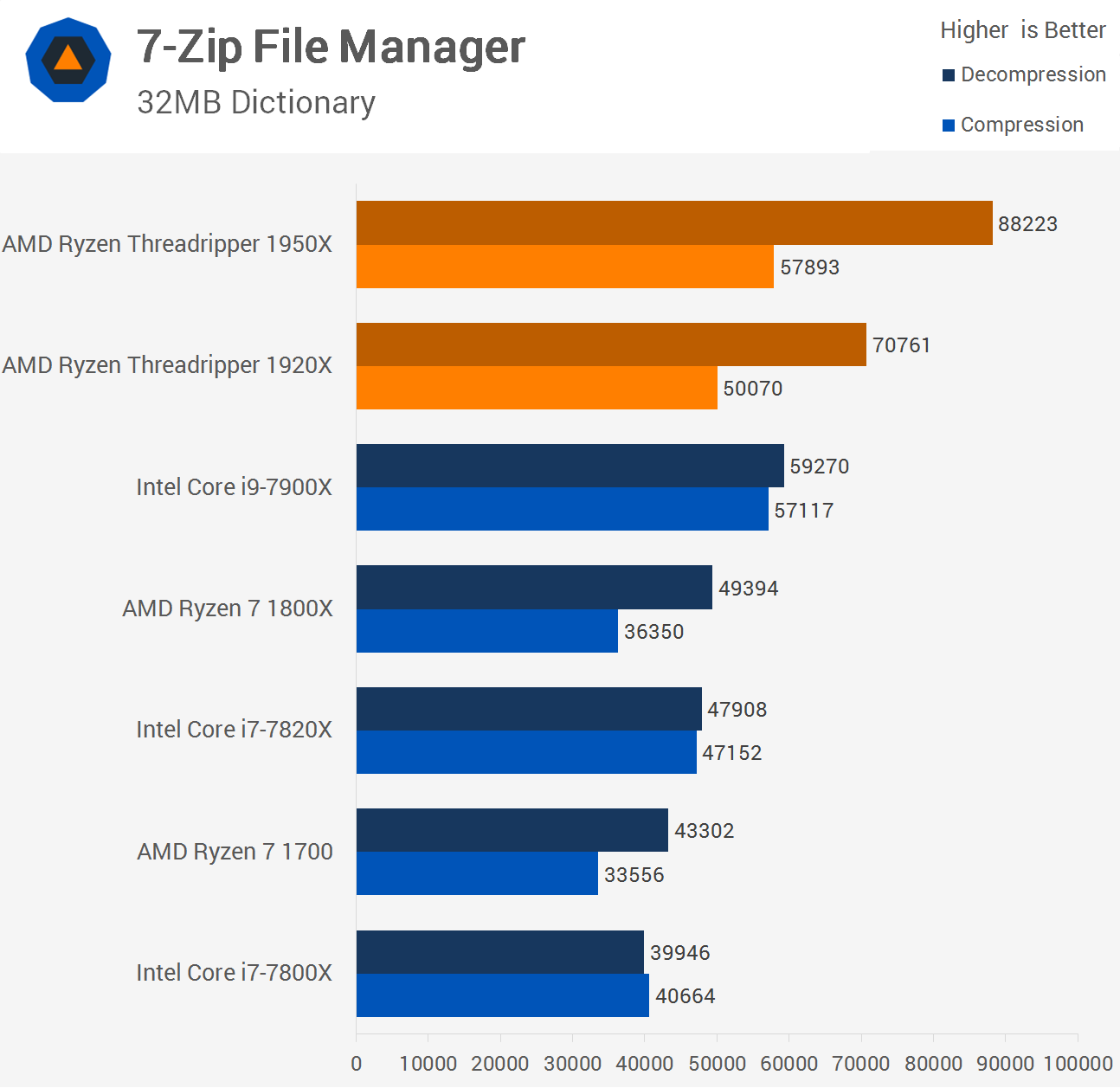Application Performance

Excel can utilize many threads, especially when running the extreme Monte Carlo simulation. Here the 1920X just edged out the 7900X, taking an impressive 1.86 seconds to complete the workload. That said, it was 12% slower than the 1950X which took just 1.66 seconds making it the fastest desktop CPU we've ever tested here.

For those of you unaware, VeraCrypt is an open-source utility used for on-the-fly encryption and features optimized implementations of cryptographic hash functions and ciphers which boost performance on modern CPUs. It also supports parallelized encryption for multi-core systems as well hardware-accelerated AES to further improve performance.
In short, it takes full advantage of the many cores Threadripper offers and we see that here. Compared to the Core i9-7900X, the 1950X was 48% faster in the 50MB test and 35% faster in the 1GB test. The 1920X also easily beat the 7900X delivering up to 25% more performance.

Next up we have unencrypted compression and decompression performance using 7-Zip. Whereas Hyper-Threading sees a similar level of efficiency when compressing and decompressing, SMT is significantly more efficiency for decompression work. SMT boosts the performance of Threadripper by around 15% for compression work, whereas I saw a massive 60% increase for decompression. Disabling SMT saw the 1950X deliver around 50,000 MIPS for both tests.
However, with SMT enabled the 1950X just beat the Core i9-7900X for the compression test but crashed it by a 53% margin for the decompression test. Meanwhile the 1920X matched the compression performance of the 7820X but was 48% faster when comparing the decompression results. Overall very strong results here for AMD's new Threadripper CPUs.
